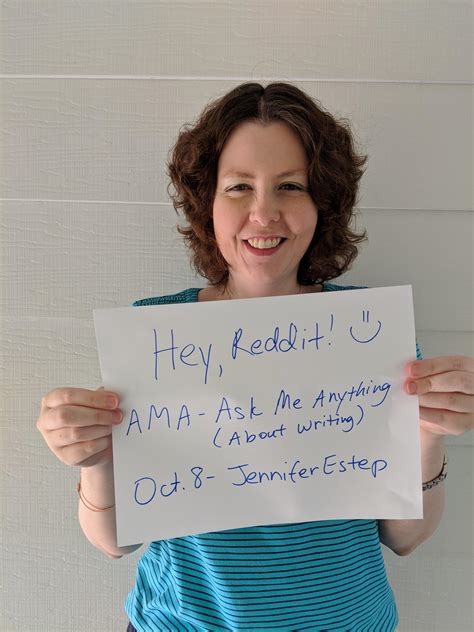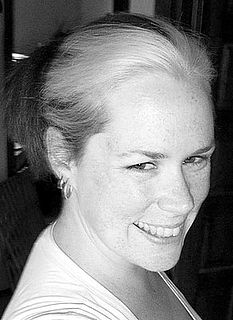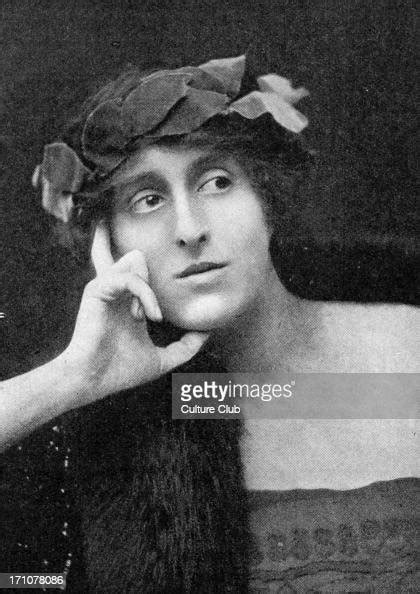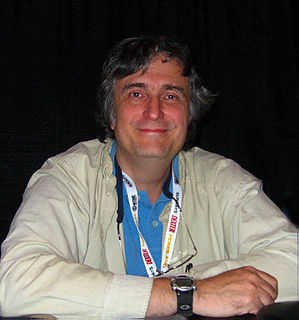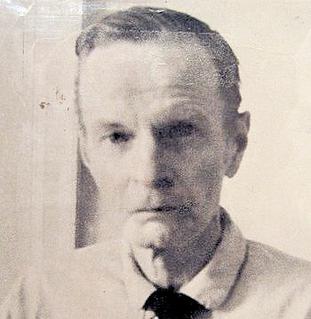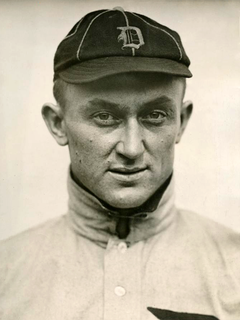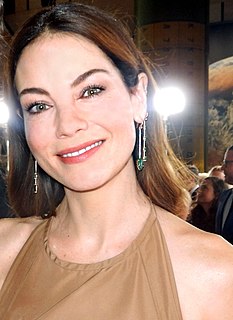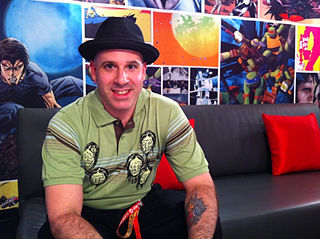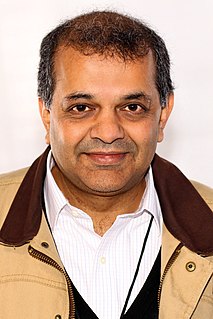Top 466 Detective Quotes & Sayings - Page 8
Explore popular Detective quotes.
Last updated on April 17, 2025.
I could have just said I'm good at my job, but I didn't. Didn't want the police thinking I was holding out information when I wasn't. "I've got one advantage over a normal homicide detective, I expect it to be a monster. No one ever calls me in if it's just a stabbing, or a hit-and-run. I don't spend a lot of time trying to come up with nice, normal explanations. It means I get to ignore a lot of theories.
You picked that out?” Caine asked. “That pink, plastic toy?” I turned to look at him. “I happen to have been a little girl, once upon a time, detective. I know what they like. Every little girl wants to be a princess.” A thoughtful frown overcame the angry tension on Caine’s rugged face. “And what happens when they grow up?” I thought of my mother and sisters and all the horrors that had happened the day they’d died. A bitter laugh escaped from my tight lips. “Then they just want to be little girls again.
When I'm writing, I won't know whodunnit until maybe two thirds of the way through. Until then, I know as little as my detective. I just make it up as I go along. It's nerve-wracking, actually. You'll be half through and not know your conclusion. You worry one of these days the ending won't come. I'll be left with only two-thirds of a novel.
Any chance of getting something sweet to go with my coffee?” [Finn] asked in a hopeful voice. I arched an eyebrow at him. “You mean all those pieces of strawberry pie that you ate for lunch weren't enough?” “I’m a growing boy,” Finn said in a sincere tone. “I need my vitamins.” Bria snorted. “The only thing that’s growing on you, Lane, is your ego.” Finn sidled up to my sister and gave her a dazzling smile. “Well, other things of mine also tend to swell up in your presence, detective.
Rita folded her arms around herself and peered up at me. “If you’d asked me three months ago I’d have said you were hitting the bottle too hard. But then I got stabbed and should have died, but instead a bunch of cops and ambulance people showed up because somebody who wasn’t even there sent them on ahead to save my life. If something like that happens to someone like me, you start to have a little faith in something bigger. I don’t know if I believe in magic or miracles all the time. But I believe in you, Detective Walker. I believe in you.
Go is one of my favorite things that I ever did. Not that I critique myself, but sometimes I'll be passing by the television, and I'll say, "Meh, maybe I would have done that a little different." I can't help [but] do that. But Go was one of those things - I really loved working with Doug Liman. Detective Burke in Go is one of those roles that's about everything I like to do. I love parts like that. And Go seems to be the thing that rolled it all into one.
I had many, many, many death threats. I couldn't open letters for a long time, because they all had to be opened by either the FBI or somebody. I couldn't open letters. I had to be escorted. In fact, just recently I went to a funeral, Calvin Wardlaw, who was the detective -- the policeman -- with me for two years, passed away just recently. He and I got to be bosom buddies really, but that was the hardest part. I wasn't able to enjoy -- you know.
He knows that after him everything will continue on much as before, except that there will be a minuscule absence, a barely detective gap in the so-called grand scheme, one unit fewer now. Or not even that, not even an empty space where he once was, for all will rush immediately to fill that vacuum. Pft. Gone. Recollections of him will remain in the minds of others for a while, but presently those others too will die and his few relics with them. And then all will be dark.
We would never call inexplicable little insights hunches, for fear of drawing the universe's attention. But they happened, and you knew you had been in the proximity of one that had come through if you saw a detective kiss his or her fingers and touch his or her chest where a pendant to Warsha, patron saint of inexplicable inspirations, would, theoretically, hang.
In many ways, I think I'm a good person for it. I mean, I'm not a musical theater dude. Or rather, I don't watch everything, and love everything, and have every album. The ones that I love - like I've seen The Wizard of Oz a hundred times. West Side Story I love. I love Singing in the Rain, I love White Christmas. I love the Dennis Potter ones like Singing Detective and Pennies from Heaven. I love Sondheim.
When, and how, and at what stage of our development did spirituality and our strange notions of religion arise? the need for worship which is nothing more than our frightened refuge into propitiation of a Creator we do not understand? A detective story, the supreme Who-done-it, written in indecipherable hieroglyphics, no Rosetta stone supplied by the consummate Mystifier to tease us poor fumbling unravellers of his plot.
Another reform I`m proposing is the passage of legislation named for Detective Michael Davis and Deputy Sheriff Danny Oliver, two law enforcement officers recently killed by a previously deported illegal immigrant. The Davis-Oliver bill will enhance cooperation with state and local authorities to ensure that criminal immigrants and terrorists are swiftly, really swiftly, identified and removed. And they will go fast, believe me. They`re going to go.
The Detective was different. Not that he wasn't a good man; Willie had heard enough about him to understand that he was the kind who didn't like to turn away from another's pain, the kind who couldn't put a pillow over his ears to drown out the cries of strangers. Those scars he had were badges of courage, and Willie knew that there were others hidden beneath his clothes, and still more deep inside, right beneath the skin and down to the soul. No, it was just that whatever goodness was there coexisted with rage and grief and loss.
Your novels show only the tiniest fraction of detective work, the brilliant crime, the tantalizing clues, the dramatic chase, the final battle atop a lofty peak with ocean waves crashing down below, and then… justice served! If they wrote about the real world, four-fifths of the story would consist of the hero sitting in a library for months and following false leads.
If this "critical openminded attitude" ... is wanted, the question at once arises, Is it science that should be studied in order to achieve it? Why not study law? A judge has to do everything that a scientist is exhorted to do in the way of withholding judgment until all the facts are in, and then judging impartially on the merits of the case as well as he can. ... Why not a course in Sherlock Holmes? The detectives, or at least the detective-story writers, join with the scientists in excoriating "dogmatic prejudice, lying, falsification of facts, and data, and willful fallacious reasoning."
I remember in The Conversation, they brought all these coats to me, and they said: Do you want him to look like a detective, Humphrey Bogart? Do you want him to look like a blah blah blah. I didn't know, and said the theme is 'privacy' and chose the plastic coat you could see through. So knowing the theme helps you make a decision when you're not sure which way to go.
The girl's face was the color of talcum. Her uncle's was a death mask, a bone structure overlaid by parchment. Shane's was granite, with a glistening line of sweat just below his hair line. He'd never forget this night, the detective knew, no matter what else happened for the rest of his life. They were all getting scars on their souls, the sort of scars people got in the Dark Ages, when they believed in devils and black magic. (Speak To Me Of Death)
Because I'm playing Dirk Gently [ in Dirk Gently's Holistic Detective Agency], I'm so fond of Dirk. I really see Dirk's vulnerability, and you get that, more and more. You'll start to see a little bit more of Dirk's backstory, why he behaves the way he does, and why he's doing what he's doing. I see a lot of his vulnerability, his sensitivity and his insecurity.
Being a homicide detective ca be the loneliest job in the world. The friends of the victim are upset and in despair, but sooner or later - after weeks or months - they go back to their everyday lives. For the closest family it takes longer, but for the most part, to some degree, they too get over the grieving and despair. Life has to go on; it does go on. But the unsolved murders keep gnawing away and in the end there's only one person left who thinks night and day about the victim: it's the office who is left with the investigation.
I don't know why one author writes westerns while another writes detective novels. You don't know why. You go where the intensity is. I feel most comfortable writing about monsters. It's possible that I feel like a monster myself. Or maybe it's because we all have a monster inside of us, a vampire, a ghost, a witch or a werewolf. You do it because it works and it feels really right and authentic.
The longer I live, the longer I realize that batting is more a mental matter than it is physical. The ability to grasp the bat, swing at the proper time, take a proper stance; all these are elemental. Batting is rather a study in psychology, a sizing up of a pitcher and catcher and observing little details that are of immense importance. It's like the study of crime, the work of a detective as he picks up clues.
As we blossom or awaken, we begin to notice there is a force in the world that seems to be operating and leading us into a certain destiny. And it's very much a kind of detective effort on our own part to figure out what these things mean. The synchronicity is essentially a meaningful coincidence that brings us information at just the right time. While leading us forward, it also feels very inspiring and destined in a way. It feels like we're on a path of unfolding in our own personal evolution.
This is really good,” Donovan Caine said, attacking his third strawberry pancake. “You sound surprised,” I said. He shrugged. “I just didn’t think an assassin would be able to cook like this.” “Well, I do get lots of practice with knives. You could say I’m multitasking.” The detective froze, his fork halfway to his mouth. “I’m kidding. I enjoy cooking. It relaxes me.
I've discovered that like every writer, I'm helpless MYSELF - and that means I find myself unconsciously or semi-consciously repeating motifs and themes and even using certain words or images recurrently in my work, no matter how much I think I'm starting fresh. But I've always admired artists who made a specific sport of trying to visit different kinds of genres or mediums or modes - not just 'western' or 'detective', but comedy/tragedy, epic and miniature, traditional/experimental.
Traditional murder mysteries are interesting because they're ostensibly about a horrible thing - murder - but underneath that, they're about restoring order to a messed-up world. By the end of a whodunit, the detective has taken the reader through all the reasons why this terrible thing happened. Through that explanation, and by seeing the killer captured, the reader feels a sense of catharsis.
I have always felt a little bit uncomfortable with question [why I'm write these stories]. It's not a question that you would ask a guy that writes detective stories or the guy that writes mystery stories, or westerns, or whatever. But it is asked of the writer of horror stories because it seems that there is something nasty about our love for horror stories, or boogies, ghosts and goblins, demons and devils.
You cannot hide any secret. If the artist succor his flagging spirits by opium or wine, his work will characterize itself as the effect of opium or wine. If you make a picture or a statue, it sets the beholder in that state of mind you had when you made it. If you spend for show, on building, or gardening, or on pictures, or on equipages, it will so appear. We are all physiognomists and penetrators of character, and things themselves are detective.
I was at the beginning stages of my pregnancy, and it never really feels real anyway, until you actually start showing and you start to feel the baby kick. Fortunately I didn't have any morning sickness or anything like that. And I really didn't want to be distracted from the work at hand, so I didn't tell anybody. It was really just towards the end of shooting where I was about five months, where I needed to tell a costume designer[ of the True Detective].
It was about eleven o'clock in the morning, mid October, with the sun not shining and a look of hard wet rain in the clearness of the foothills. I was wearing my powder-blue suit, with dark blue shirt, tie and display handkerchief, black brogues, black wool socks with dark little clocks on them. I was neat, clean, shaved and sober, and I didn't care who knew it. I was everything the well-dressed private detective ought to be. I was calling on four million dollars.
A detective novel should contain no long descriptive passages, no literary dallying with side-issues, no subtly worked-out character analyses, no 'atmospheric' preoccupations. Such matters have no vital place in a record of crime and deduction. They hold up the action and introduce issues irrelevant to the main purpose, which is to state a problem, analyze it, and bring it to a successful conclusion. To be sure, there must be a sufficient descriptiveness and character delineation to give the novel verisimilitude.
Writing a novel was like I had some Play-Doh to work with and could just keep working with it - doing a million drafts and things changing radically and characters appearing and disappearing and solving mysteries: Why is this thing here? Should I just take that away? And then realizing, no, that is there, in fact, because that is the key to this. I love that sort of detective work, keeping the faith alive until all the questions have been sleuthed out.
My high school English teacher in junior year, Dr. Robert Parsons, assigned us some Poe stories, including 'The Black Cat' and 'The Purloined Letter.' Being an animal person, I had trouble with 'The Black Cat!' I got hooked instead by 'The Purloined Letter,' a Poe story with detective C. Auguste Dupin.
Breakfast is the best time for me to figure out what my kids are doing. Right after you wake them up at breakfast, you pepper them with questions. You can get in there because they're not protecting what they thought was cool: "What happened yesterday?" "Oh, Matthew stole my book and ran away and it was really annoying..." That wouldn't happen after lunch, because their defenses are up. In the morning, if you lull them into a comfortable place, you get more honesty, and that's without being a detective.
My first job was with the Burns Detective Agency. They sent me over to the East River to guard coal barges during these god-awful hours like three to six in the morning. It wasn't a very difficult job -- all I had to do was make a round every fifteen minutes -- but it turned out to be a great environment for writing. I was completely alone in a little outhouse with an electric heater and a little desk.
I remember watching 'Colombo' a lot with my dad. That was one of the first detective shows I remember watching. And I remember my dad turning to me - my dad loves to turn to me and explain why things are funny. He used to do that with 'Seinfeld' all the time. He did it with 'Colombo', too, set the scene.
I've been very lucky at what's happened in my career to date, but playing something as far from me as possible is an ambition of mine - anything from a mutated baddy in a comic book action thriller, to a detective. If anything, I'd like Gary Oldman's career: he's the perfect example of it. I've love to have a really broad sweep of characters - to be able to do something edgy, surprising and unfashionable.
I got into comics about the same time as music. By 12 years old, I had discovered my dad's killer comic book collection filled with Silver Age books from his youth...early Spider-Man, Thor, Fantastic Four, The Hulk, Detective Comics, Action Comics, you name it. Seeing those old books got me interested in new comics, so my friends and I would hit the local comic shop every Saturday to pick up the cool titles of my generation.
While I was writing my book, I got a top police official in Bombay an invitation to study terrorism at the Rand Institute in Washington DC. This would have helped the city enormously, as he was the detective who cracked the '93 blasts case. But the commissioner declined to let his subordinate take up the offer from Rand, because of his fear that it was CIA-affiliated. That culture of suspicion needs to change; India needs to learn how other democracies fight terror.
You say that your fare told you that he was a detective?" "Yes, he did." "When did he say this?" "When he left me." "Did he say anything more?" "He mentioned his name." Holmes cast a swift glance of triumph at me. "Oh, he mentioned his name, did he? That was imprudent. What was the name that he mentioned?" “His name," said the cabman, "was Mr. Sherlock Holmes.
This element of surprise or mystery — the detective element as it is sometimes rather emptily called — is of great importance in a plot. It occurs through a suspension of the time-sequence; a mystery is a pocket in time, and it occurs crudely, as in "Why did the queen die?" and more subtly in half-explained gestures and words, the true meaning of which only dawns pages ahead. Mystery is essential to a plot, and cannot be appreciated without intelligence.
It is not the fault of the entrepreneurs that the consumers,the people, the common man,prefer liquor to Bibles and detective stories to serious books, and that governments prefer guns to butter. The entrepreneur does not make greater profits in selling bad things than in selling good things. His profits are the greater the better he succeeds in providing the consumers with those things they ask for most intensely.
Our main character is Klem Ristovych, the most senior detective in the MCPD. Klem's a dinosaur, the oldest cop working the Fuse, and nobody can believe she hasn't retired yet. Hell, she can hardly believe it herself. But what else is she going to do? Sit at home and watch soap operas all day? She'd throw herself out of an airlock first.

